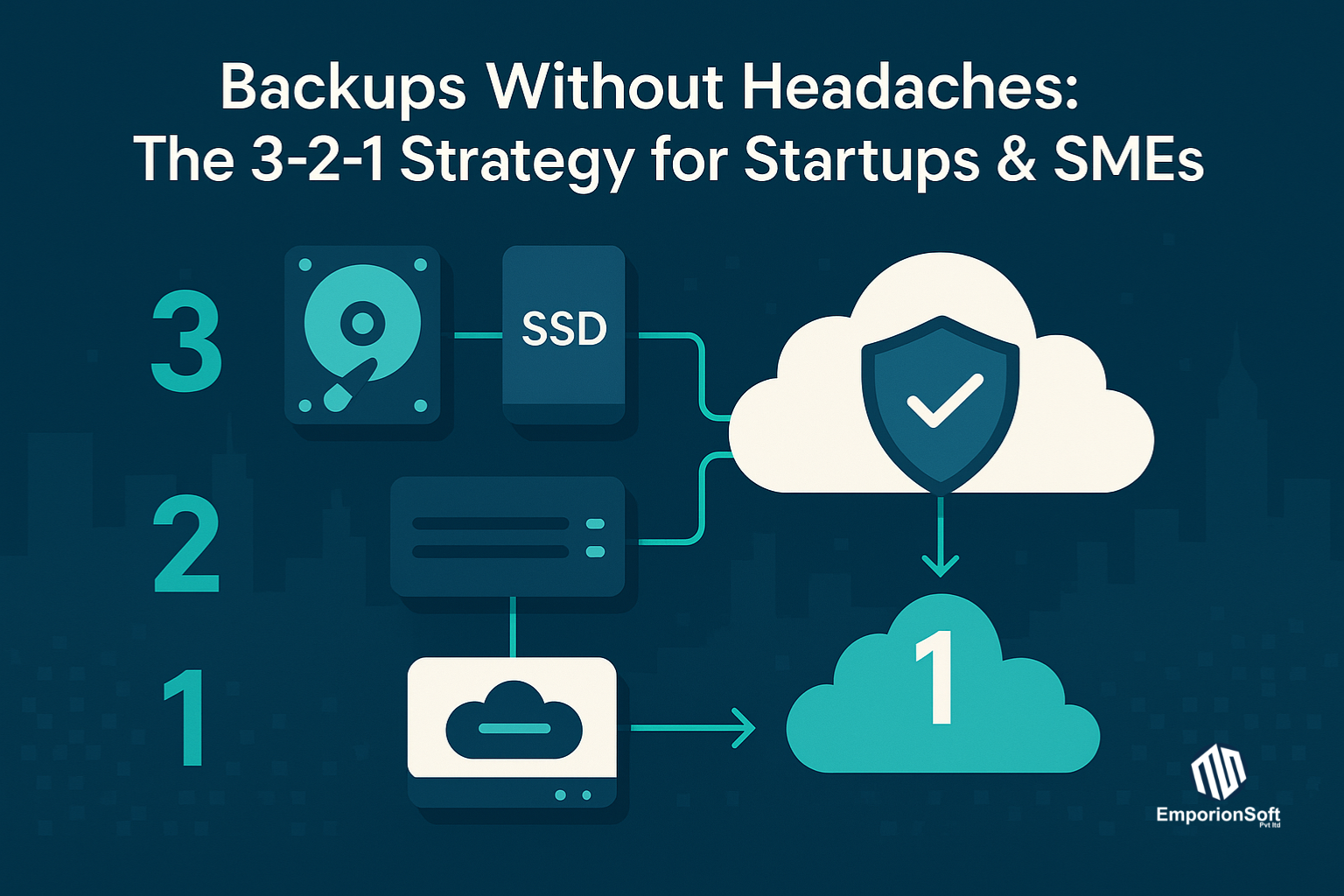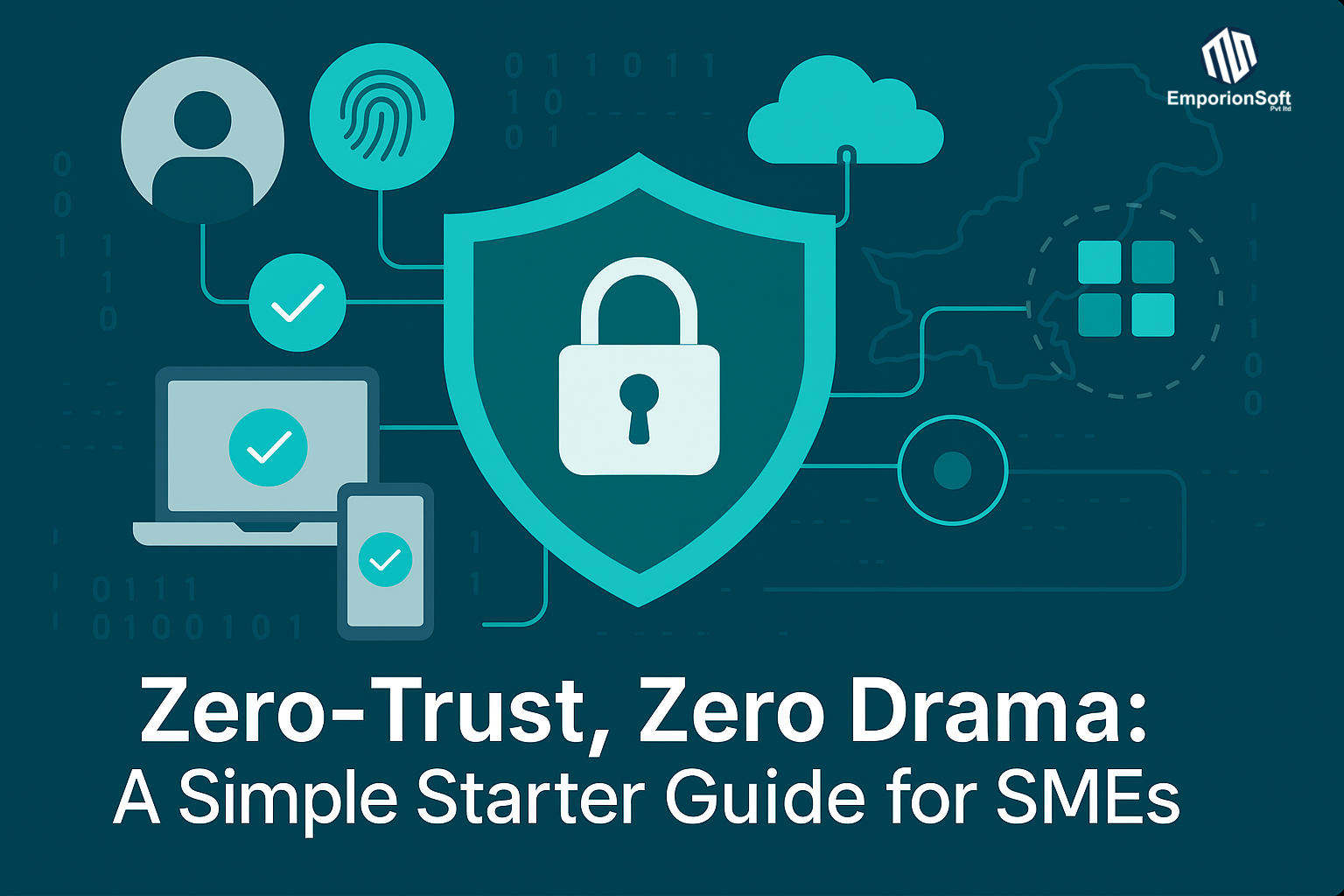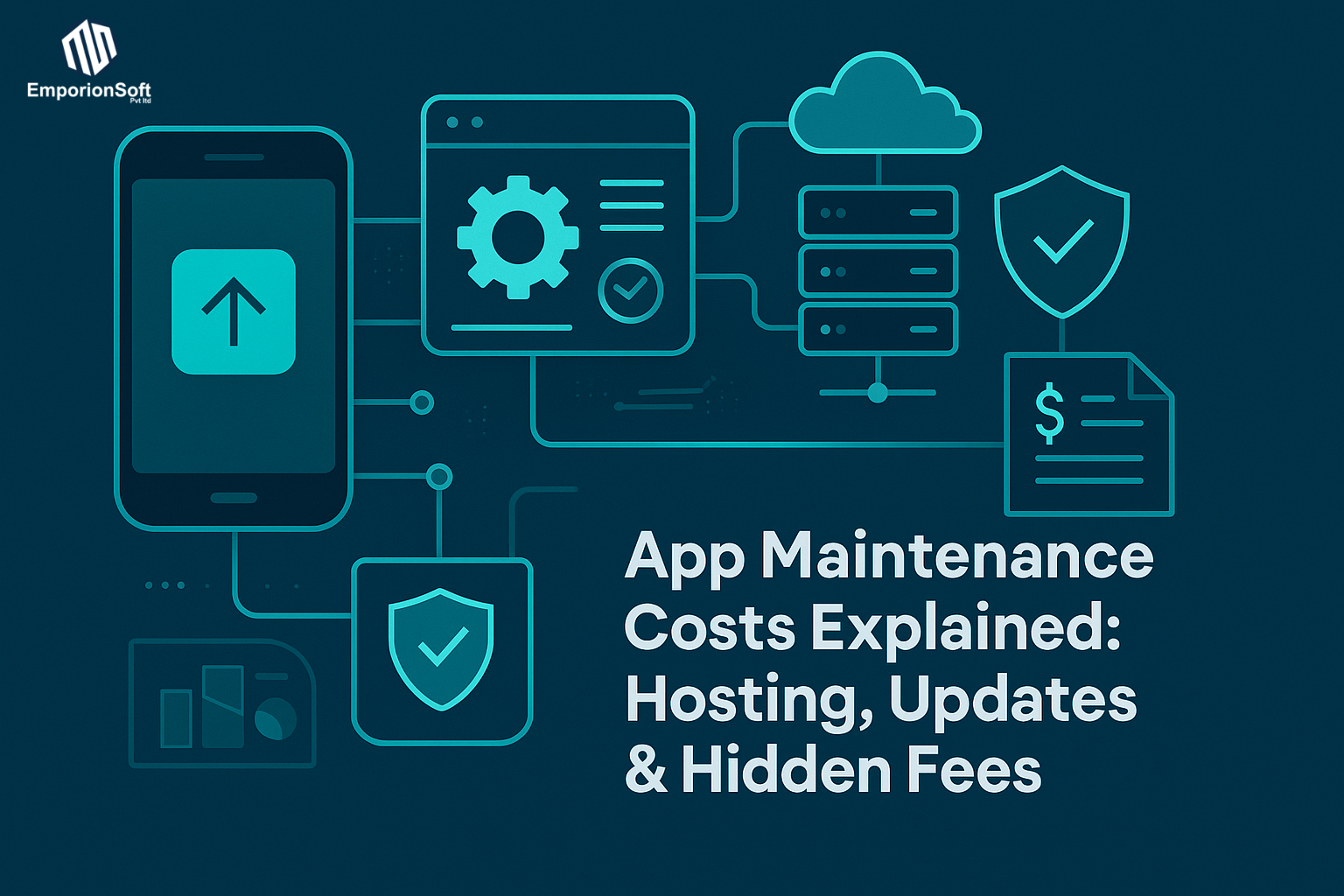Why Startups & SMEs Can’t Ignore the 3-2-1 Backup Strategy
Data loss doesn’t knock politely. It hits without warning—one wrong click, one misconfigured cloud bucket, one ransomware link—and suddenly an entire business grinds to a halt. This is exactly why the 3-2-1 backup strategy has become a lifeline for startups and SMEs. In a world where digital operations move fast and margins are tight, losing even a single day of data can cause a chain reaction that is hard to recover from.
For growing companies—especially those without large IT teams—the risk is real. Many founders assume their systems are “safe enough” because they rely on a single external hard drive or a basic cloud backup. But traditional backups fail more often than people realise. Drives corrupt. Laptops get stolen. Misconfigured cloud folders accidentally share or erase files. And when ransomware hits, attackers don’t just lock your device—they often encrypt your backups too.
Pakistan’s business environment is moving through a significant digital transformation. From Karachi’s e-commerce startups to Lahore’s software houses to Islamabad’s consulting firms, companies are generating more data than ever before. Yet data protection remains one of the most overlooked aspects of business planning. In fact, studies from NIST show that most breaches succeed because organisations underestimate their backup vulnerabilities. This makes data loss prevention Pakistan 3-2-1 backup strategies more essential than ever.
What makes the situation even more challenging is how quickly threats evolve. Ransomware attacks have surged globally, and Pakistan is no exception. Cybercriminals know that SMEs are less equipped to defend themselves, and they exploit that weakness. With each year, the cost of an attack rises—not just the financial damage but the reputation hit, lost client trust, and endless recovery effort that follows.
Even accidental deletions remain one of the top causes of data loss worldwide. A single team member mistakenly removing a shared folder can wipe away months of work. Cloud misconfiguration is another silent killer. Many Pakistani SMEs rely on platforms like Google Drive or OneDrive without understanding that cloud sync is not the same as a Pakistani company backup strategy 3-2-1. When a file is deleted locally, syncing services often delete it everywhere else too. That’s not backup—it’s duplication with risk.
This is where the 3-2-1 rule steps in as the globally accepted gold standard. It’s simple, flexible, and designed for real-world failure scenarios. And unlike traditional single-location backups, the 3-2-1 backup strategy Pakistan model ensures your business has multiple layers of protection:
Three copies of your data.
Two different types of storage media.
One off-site location.
This framework works because it acknowledges that things go wrong at every level: devices fail, users make mistakes, networks crash, and bad actors find their way in. By spreading backup copies across different places and formats, you build a resilience system that mirrors how modern businesses operate.
For startups and SMEs in Pakistan, this approach also fits naturally with existing workflows. A company can keep one copy on local machines, another on an external drive or NAS, and a third off-site using a cloud provider. No complex infrastructure needed. No enterprise-level systems required. Just a structured approach to staying safe.
And when a business wants to scale or automate this setup, digital service partners like EmporionSoft—trusted for delivering future-ready solutions—can provide guidance on cloud integration, secure storage, and customised backup workflows. You can explore more about their expertise on the Services page or learn about the team behind these solutions on About EmporionSoft.
The bottom line is simple: modern businesses cannot afford fragile data systems. Whether it’s ransomware, accidental deletion, misconfiguration, or hardware failure, the threat landscape keeps expanding—and the only long-term defence is adopting a structured, reliable backup rule that doesn’t break when you need it most.
What the 3-2-1 Backup Strategy Really Means
The beauty of the 3-2-1 backup strategy lies in its simplicity. It breaks down the complex world of data protection into a practical, easy-to-follow structure that any business—from a two-person startup to a growing SME—can implement. Whether you’re running a digital agency, an e-commerce brand, or a SaaS platform, the logic behind the 3-2-1 backup rule Pakistan applies universally. It gives founders a safety net that actually works in real life, not just in theory.
At its core, the strategy is built around three copies of your data. The first copy is the live data your team uses every day. The second is a local backup stored on a different device, such as an external hard drive or a NAS system. And the third copy sits separately—ideally far away—acting as your ultimate line of defence. The idea isn’t to complicate your workflow but to prevent a single point of failure from wiping everything out.
These three copies ensure that even if something unexpected happens—a corrupt SSD, ransomware, a laptop crash, or a staff error—there’s always a fallback. Think of it as digital redundancy that mirrors how mission-critical systems operate worldwide.
The next part of the rule focuses on two different media types. This is where many businesses, especially in Pakistan, unintentionally weaken their protection. If all your backups sit on the same type of device, using the same storage method, you’re exposed to the same type of failure. For example, keeping everything on two USB drives sounds convenient, but both are vulnerable to corruption, theft, or physical damage.
Using varied backup media types Pakistan 3-2-1 rule—such as pairing a NAS with an encrypted cloud storage platform—reduces that risk significantly. It also helps guard against hardware-specific failures that can happen without warning.
Finally, the “1” stands for one off-site copy. This is arguably the most important part of the entire off-site backup Pakistan 3-2-1 strategy. If your business only stores backups in one physical location—say, in your office or store—then a single incident can destroy everything at once. Fire, flooding, theft, or even a power surge can take all local copies with it. An off-site or cloud copy ensures your data survives even when your physical environment does not.
Cloud services have made this step even easier. Most major providers offer encrypted, automated backups that run quietly in the background. Platforms like Google Cloud—which highlights best practices in its own Backup and DR documentation (Google Cloud Docs)—show why businesses globally depend on the 3-2-1 model for resilience.
The rule’s global success comes from real-world reliability. It doesn’t rely on a specific platform, toolset, or vendor. It’s adaptable for small budgets, scalable as companies grow, and practical for organisations that don’t have full-time IT teams. This is why giants like IBM, emerging startups, and local SMEs all use the same framework: it works everywhere, for everyone.
In Pakistan’s startup ecosystem, this reliability is even more crucial. Many SMEs operate in fast-paced environments with limited infrastructure. Internet outages, unstable power conditions, and rapid scaling can expose businesses to risks they weren’t anticipating. A new Lahore-based SaaS team, for example, might store live client data on laptops, keep a backup on a shared NAS in the office, and store the third copy in a secure cloud vault. If ransomware hits the local network, the cloud copy keeps operations running. If hardware fails, the NAS copy gets the team back on track in minutes.
Hybrid backups—blending cloud storage with local drives—offer the sweet spot for Pakistani businesses. They allow fast access through local copies, cost-efficient long-term retention in the cloud, and peace of mind knowing you’re not relying on a single method.
For companies exploring scalable data design or systems that work in real time, EmporionSoft’s insights in Real-Time AI in Production demonstrate how robust infrastructure underpins growth. You can also explore practical outcomes through real projects in the Case Studies section to see how resilient systems help businesses stay competitive.
Why the 3-2-1 Rule Is Still Relevant in 2025
The 3-2-1 framework continues to dominate best-practice recommendations because technology might evolve, but failure points haven’t disappeared. Hardware dies. Software glitches. Misconfigurations slip through. And cyber threats grow sharper every year. For startups and SMEs navigating Pakistan’s digital shift, a structure as consistent and adaptable as this rule remains the most dependable shield against unexpected loss.
H2: Why the 3-2-1 Backup Model Is Perfect for Pakistani Startups & SMEs
For growing companies, the 3-2-1 backup strategy isn’t just a technical recommendation—it’s a business survival tool. Pakistan’s startup scene is expanding rapidly, with digital-first ventures, service agencies, SaaS products, and e-commerce brands depending on constant access to business-critical data. Yet many of these organisations operate with lean teams, limited budgets, and minimal IT oversight. That’s exactly where the small business backup strategy Pakistan 3-2-1 becomes invaluable.
The model offers a structure that saves money, reduces risk, and strengthens operational resilience without requiring specialised technical expertise. For startups juggling client deadlines or SMEs managing day-to-day operations with thin margins, a system that is simple, predictable, and cost-effective is often the difference between a minor hiccup and a business-ending disaster.
One of the biggest advantages for Pakistani companies is how the strategy sidesteps the costs of traditional enterprise backup systems. Instead of investing heavily in proprietary hardware or subscription-based software, the 3-2-1 backup plan for Pakistani businesses lets them combine affordable local storage with cloud solutions that scale as they grow. A small design agency in Rawalpindi, for example, can keep live project files on office PCs, store a copy on a low-cost NAS device, and maintain the third backup using a secure cloud provider. The entire setup remains budget-friendly while offering enterprise-grade security.
Another major benefit is speed. When a business loses data, time becomes the enemy. The longer the recovery window, the bigger the financial impact. With the 3-2-1 structure, recovery becomes dramatically faster. The second local copy—usually stored on a drive or NAS—enables rapid restoration. Instead of waiting hours or days for cloud downloads, teams can get back to work immediately. For small businesses that can’t afford long downtime, this immediate recovery is critical.
Ransomware remains one of the most dangerous threats facing organisations worldwide. In Pakistan, attacks are becoming increasingly frequent, targeting SMEs that lack robust cybersecurity layers. The layered design of the data backup strategy Pakistan 3-2-1 ensures that even if a ransomware attack encrypts primary and secondary systems, the off-site copy stays protected. Many attacks target connected drives, but cloud-stored backups—especially those with versioning—remain safe. It’s this separation that often determines whether a business recovers in hours or collapses entirely.
Operational downtime doesn’t just cost money; it erodes trust. Startups delivering software updates, agencies handling client documents, and retailers processing orders can’t afford long interruptions. The 3-2-1 model reduces downtime by ensuring a clean, accessible copy exists at all times. For example, an Islamabad-based SaaS company relying on a single cloud storage provider may face a temporary outage, but the 3-2-1 rule ensures that a local copy and an off-site version keep the organisation running smoothly until the issue is resolved.
Compliance is another hidden benefit. Whether a company deals with customer records, financial data, or sensitive business documents, clients increasingly expect strong data protection standards. The 3-2-1 rule aligns with best practices recommended by global frameworks such as the NIST Cybersecurity Framework, helping Pakistani companies maintain a stronger compliance posture even without formal audits.
What makes this model especially accessible is its simplicity. Non-technical founders don’t need to understand complex storage architectures. The logic is straightforward: keep three copies, use two different storage types, and maintain one off-site. A retail shop in Multan, a travel agency in Lahore, or an EdTech startup in Karachi can all adopt it without specialised IT staff. And as data grows, the system evolves easily—local drives can be upgraded, cloud storage can expand, and automation can be added over time.
For companies looking to build deeper resilience or scale their infrastructure intelligently, resources like EmporionSoft’s insights on Data Lakes for Scalable Software Development or guidance on Managing Technical Debt offer valuable next steps.
Practical Business Benefits You Can See Immediately
The advantages of the 3-2-1 approach appear quickly. Reduced costs, faster recovery, ransomware protection, and less downtime all translate into operational confidence for Pakistani SMEs. It’s one of the rare strategies that supports growth, safeguards client trust, and empowers even non-technical business owners to secure their digital assets without complexity.
How to Implement the 3-2-1 Backup Strategy in Pakistan
Putting the 3-2-1 backup strategy into practice doesn’t require an enterprise-sized budget or a full IT department. In fact, the framework is designed to be simple enough for any organisation to apply, whether you’re a new startup in Karachi or an established SME in Lahore. The key is understanding how to select the right storage methods, how often to back up, and how to maintain a system that keeps running even when things go wrong. If you’ve ever wondered how to implement 3-2-1 backup strategy in Pakistan, this section walks you through every step in a practical, business-friendly way.
The first stage is selecting your backup media. You need a combination that supports the “3” and “2” components of the rule. Many Pakistani companies begin by using their daily working files stored on local machines or a shared office server. For the second copy, an external hard drive (HDD), solid-state drive (SSD), or a NAS device is ideal. HDDs offer large storage at low cost, SSDs provide faster performance and durability, while NAS systems act as mini-servers that multiple team members can access. Each business can choose based on budget and data size.
The third copy should sit off-site—and this is where cloud solutions shine. Services like Google Cloud, iCloud, OneDrive, or S3-compatible platforms have made the cloud backup Pakistan 3-2-1 rule far easier to follow. Even small companies can store encrypted backups in the cloud with automated schedules. This becomes your ultimate safety net if your office environment is ever compromised due to theft, fire, hardware failure, or a cyberattack.
Step-by-Step Breakdown for Startups & SMEs
1. Pick Your Storage Combination
A practical starter setup for Pakistani SMEs might look like this:
-
Copy 1 (Primary): Your live working files stored on laptops or a shared office server.
-
Copy 2 (Secondary Local Copy): A weekly or daily backup stored on an SSD or NAS device.
-
Copy 3 (Off-Site Copy): A cloud backup synced automatically on a secure account.
This hybrid setup fits the hybrid backup solutions Pakistan 3-2-1 approach—fast recovery locally, long-term safety in the cloud.
2. Automate Your Backups
Manual backups are risky because someone inevitably forgets. Automation is essential. Most NAS systems come with built-in scheduling tools, and cloud platforms allow automated syncs at set intervals. Even external drives can use lightweight backup software to run daily or weekly jobs without relying on human memory. The goal is to ensure consistency and minimise room for error.
3. Decide Your Backup Frequency
Different businesses need different rhythms. A design agency might back up once a day, while a SaaS startup handling rapid code changes might do it hourly. Retail or trading companies may only need daily backups of sales and inventory records. The general rule is simple: back up as frequently as you can without interrupting operations.
For growing organisations with increasing data volumes, automation helps keep the process smooth and hands-free.
4. Make Off-Site Storage Mandatory
Local backups are convenient, but off-site storage protects you from disasters. Cloud storage is the easiest method, but some companies may store removable encrypted drives at a separate office location. The point is redundancy—keeping at least one copy well away from the physical environment of your business.
5. Test Backup Integrity Regularly
Many SMEs make the mistake of backing up everything but never checking if those backups actually work. At least once a month, restore a few files to verify integrity. Recovering is just as important as storing. Without testing, you only have a false sense of security.
6. Start Small if Your Budget Is Limited
You don’t need enterprise-grade infrastructure on day one. A Lahore-based small business can begin with a simple SSD for local backups and a basic cloud plan. As data grows, the system can scale—bigger drives, more advanced NAS setups, or automated cloud versioning.
7. Bring in Specialists When Needed
When data grows too complex or when a business relies heavily on digital operations, involving a professional partner becomes wise. EmporionSoft can help organisations design secure, scalable backup workflows that avoid common pitfalls and align with long-term digital strategy. Explore more on the Services page or request guidance through Consultation.
A structured implementation ensures that the 3-2-1 rule becomes second nature—a dependable part of how your business operates every day.
Costs, Tools, and Budgeting for the 3-2-1 Backup Strategy
Budgeting for the 3-2-1 backup strategy doesn’t need to feel overwhelming. One reason this model is so widely adopted is its flexibility—it scales for small startups in Lahore just as well as for mid-sized enterprises in Karachi or Islamabad. You can begin with low-cost tools, expand gradually, or invest in enterprise-grade storage depending on your business needs. Understanding the true costs—from hardware to cloud subscriptions—helps you build a resilient data system without overspending.
The first component of the model usually involves local storage. HDDs remain the most budget-friendly option for Pakistani businesses, with 1TB drives costing anywhere between PKR 9,000–12,000. SSDs—while faster and more durable—cost more, typically PKR 15,000–22,000 for similar capacity. NAS devices, which allow multiple users to back up data simultaneously, range from PKR 35,000 for basic two-bay units to over PKR 120,000 for higher-end systems. For many SMEs, combining an SSD for quick recovery and a NAS for centralised storage strikes the right balance between price and performance.
The second cost layer comes from cloud solutions. Cloud pricing varies depending on the provider and the storage tier. In Pakistan, access to major players like Google Cloud, AWS, and Azure is straightforward, and prices are generally quoted in USD. Google Cloud charges around $0.020–$0.026 per GB per month for standard storage. AWS S3 falls in a similar range, with their official pricing page offering granular cost breakdowns based on usage tiers. Microsoft Azure’s calculator also shows pricing between $0.018–$0.025 per GB, making all three providers fairly comparable. Many SMEs find cloud storage affordable because they only pay for what they use, and they can scale at any pace.
For companies searching for free or low-cost tools, open-source options are attractive. Solutions like Duplicati, UrBackup, and Restic offer encrypted backups, automation, and cross-platform compatibility at zero licensing cost. When used with a NAS or an inexpensive cloud provider, they form a strong foundation for a Pakistani company backup strategy 3-2-1 without significant investment.
However, cost isn’t only about hardware or cloud subscriptions. Businesses often overlook the hidden expenses: the time spent setting up backup workflows, the cost of migrating data from old machines, and the ongoing need to test backups. Neglecting testing can turn even the best-planned system into a false safety net. Monthly integrity checks and occasional restoration drills should be part of your operational planning, even if they require a little extra time or staff training.
Another factor to consider is the hardware-versus-software trade-off. Local hardware offers quick recovery times and low long-term costs but requires physical maintenance and occasional upgrades. Cloud software removes physical handling, ensures geographic redundancy, and automates much of the process, but it introduces recurring subscription fees. Most Pakistani SMEs opt for a hybrid approach, using hardware for speed and convenience, and software-based cloud storage for long-term off-site protection.
Cities like Lahore, Karachi, and Islamabad present varying cost landscapes. Urban SMEs often face higher operational expenses, so cloud-first strategies may be more appealing for their predictability. Smaller businesses or those in developing areas may prioritise local storage to avoid reliance on inconsistent connectivity. On average, most SMEs in major cities spend between PKR 3,000–15,000 monthly on cloud services and PKR 20,000–80,000 upfront for hardware, depending on the scale of their data.
For companies researching which cloud option suits them best, EmporionSoft’s guides on the Future of Cloud Computing and the Cloud Providers Comparison 2025 offer detailed insights into pricing structures, performance, and strategic fit. These resources help organisations match their backup budgets with long-term operational plans.
In the end, understanding the 3-2-1 backup strategy cost Pakistan landscape isn’t about hitting an exact number—it’s about building a system that fits your needs, balances cost and protection, and evolves as your data grows. Whether you use enterprise solutions or a mix of affordable tools and cloud tiers, the data backup strategy Pakistan 3-2-1 principle remains the most reliable, budget-conscious way to secure business continuity.
Common Backup Mistakes Pakistani SMEs Make
Despite growing awareness, many small and medium-sized businesses still struggle with effective data protection. Even when owners have heard of the 3-2-1 backup strategy, they often misunderstand how to apply it. These missteps usually don’t seem dangerous—until a crisis hits and everything unravels at once. The result is preventable downtime, lost revenue, and damaged client trust. Understanding where businesses commonly go wrong is the first step toward stronger resilience.
One of the most frequent oversights is relying on a single local backup, usually stored on the same machine or in the same office. A shop in Lahore might keep customer ledgers on a laptop and store a backup on an external USB drive in the same drawer. When that laptop gets infected with malware, or when the shop faces a power surge, both copies can become corrupted instantly. This is exactly why the layered design of 3-2-1 data backup Pakistan is so essential.
Another recurring problem is misconfiguration—especially when cloud services are involved. Many founders assume that because their files sync to Google Drive or OneDrive, they are automatically protected. But cloud sync is not the same as a backup. If someone accidentally deletes a critical project folder or overwrites an important document, the cloud service often syncs that deletion across every device. The entire file history disappears unless versioning is manually enabled. This misunderstanding leaves many businesses believing they are safe when they are actually exposed to major risk.
A related issue is assuming cloud providers automatically manage everything. Misplaced settings, weak passwords, disabled 2FA, and unrestricted access permissions can create vulnerabilities that allow ransomware or insider errors to spread quickly. Without the structured layers defined in the 3-2-1 backup methodology Pakistan, even cloud-centric businesses can fall victim to complete data loss.
Testing is another major blind spot. Many SMEs perform backups but never verify whether those backups actually work. Without regular testing, corrupt files and incomplete syncs remain unnoticed until a real emergency occurs—and by then, it is too late. Proper testing is a core element of a mature disaster recovery backup Pakistan 3-2-1 strategy, but it’s also one of the most ignored.
Malware can also wipe out poorly structured backups. If a company relies only on a plug-in external drive, sophisticated ransomware can target that device as well. Many attacks are designed to destroy or encrypt every storage medium connected to the infected system. Without an off-site or cloud-based copy, recovery becomes nearly impossible.
These issues aren’t theoretical—they reflect real experiences from businesses across Pakistan. And for organisations wanting to strengthen resilience further, EmporionSoft’s insights on Disaster Recovery & Business Continuity provide deeper strategic guidance.
Real Situations Where the 3-2-1 Rule Could Have Saved the Day
Real-world examples show how quickly a small mistake can snowball into a significant operational crisis.
Consider a small digital marketing agency in Islamabad. Their designers stored branding assets on a shared PC and backed them up weekly to a portable drive. One evening, the office was hit by ransomware. The malware encrypted not only the main machine but also the USB drive plugged into it. With no off-site copy, months of client work vanished instantly. A simple implementation of the 3-2-1 backup strategy—with at least one cloud copy—would have preserved everything.
Another example involves a Karachi-based online store. Their product database lived on a local server, with a secondary copy synced to Google Drive. When a new team member mistakenly deleted a master folder, Google Drive treated the deletion as an instruction and synced the removal everywhere. No version history was enabled. Had they followed the 3-2-1 data backup Pakistan approach and kept an isolated third copy on a cloud backup platform, the loss would have been trivial instead of devastating.
A textile business in Faisalabad faced a different issue. Their NAS device was configured incorrectly, causing backups to fail silently for nearly six months. No one noticed until a hardware crash highlighted the problem. Regular testing—part of a healthy disaster recovery backup Pakistan 3-2-1 strategy—would have exposed the issue early and prevented panic.
Another common situation involves theft. Many SMEs keep storage drives in the same office where laptops, desktops, and POS systems operate. When a Lahore-based retail outlet experienced a break-in, thieves stole both the primary systems and the local backup drives. Only an insured, off-site cloud copy would have protected their financial records and inventory data.
These situations highlight why the 3-2-1 backup methodology Pakistan works across industries. The model ensures at least one copy stays out of harm’s way—away from theft, malware, misconfiguration, and accidental deletion.
For organisations seeking personalised guidance on designing a safer backup structure, EmporionSoft can be reached through Contact Us for tailored support.
The 3-2-1 Backup Strategy: Your Blueprint for a Stress-Free Future
In the fast-moving world of modern business, unpredictability is the only constant. Devices fail, ransomware evolves, human error slips through, and cloud platforms misbehave when you least expect it. That’s exactly why the 3-2-1 backup strategy stands as one of the most reliable long-term shields for both Pakistani SMEs and international startups. It isn’t just a technical framework—it’s business insurance, operational confidence, and peace of mind wrapped into a simple, structured approach.
Over the course of this guide, you’ve seen how this rule offers protection from every angle. Three copies ensure redundancy. Two different media types minimise risk from single-point failures. One off-site copy safeguards your organisation against disasters—natural or digital. Whether you operate in Lahore, Karachi, Islamabad, or serve clients around the world, the resilience of your business depends on how well your data is protected. For companies exploring 3-2-1 backup strategy cost Pakistan considerations, the core value isn’t just in saving money—it’s in preserving continuity and avoiding catastrophic downtime.
The importance of this model becomes even clearer when looking at global research. Gartner’s studies on cyber-resilience highlight that most breaches escalate not because organisations lack tools, but because they lack structured, multi-layered backup systems. That’s exactly where the 3-2-1 model excels. It’s simple enough for non-technical teams, but powerful enough to meet international standards for security and disaster recovery.
Throughout this article, we’ve explored how implementation works in real life—choosing the right media types, combining local and cloud storage, automating backups, and testing data integrity regularly. Hybrid setups show particular strength, blending fast local recovery with the safety of off-site or cloud-based protection. For tech-forward businesses or fast-scaling startups, hybrid backups are the easiest way to future-proof operations while keeping systems agile.
We’ve also looked at common mistakes—misconfigurations, relying solely on Google Drive sync, storing all backups in one location, skipping testing, or using outdated hardware. These are pitfalls many SMEs encounter unintentionally, especially when operating without dedicated IT teams. The structured nature of the data backup strategy Pakistan 3-2-1 approach eliminates these vulnerabilities with clear, practical safeguards that stay consistent over time.
Above all, the 3-2-1 method works because it adapts to your scale. Whether you’re running a three-person agency, a SaaS startup, an e-commerce brand, a retail shop, or a production house—the core rule stays the same. You don’t need enterprise budgets or complex data centres. You simply need discipline, consistency, and a smart combination of local, cloud, and off-site storage.
Ready to Protect Your Business? EmporionSoft Can Help.
Data resilience isn’t something to postpone until “next quarter” or “after the next release cycle.” Every business—big or small—has moments when one unexpected event can disrupt everything. The real question isn’t whether something will go wrong; it’s whether your business will be ready when it does.
EmporionSoft helps companies across Pakistan and around the world turn the 3-2-1 rule into a customised, automated, and future-proof system. Whether you need help designing a hybrid setup, integrating cloud services, automating backups, improving recovery time, or aligning with global best practices, our experts are here to guide you step by step.
If you’re considering a modern Pakistani company backup strategy 3-2-1 or want to strengthen your disaster-recovery posture, now is the perfect moment to act. Your data deserves more than a single USB drive or a cloud sync folder—you need a structure that stands strong through hardware failures, cyberattacks, accidental deletions, and operational growth.
Take the first step toward complete peace of mind:
👉 Discuss your needs with us:
https://emporionsoft.com/contact-us/
👉 Book a consultation for a tailored backup assessment:
https://emporionsoft.com/consultation/
👉 Explore our full suite of services:
https://emporionsoft.com/services/
Your data is the engine of your business. Protect it with a strategy built to last—and a team that understands how to safeguard your success.









